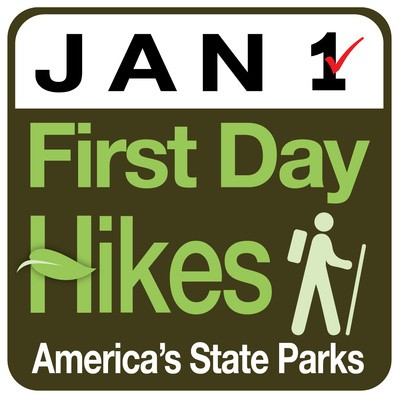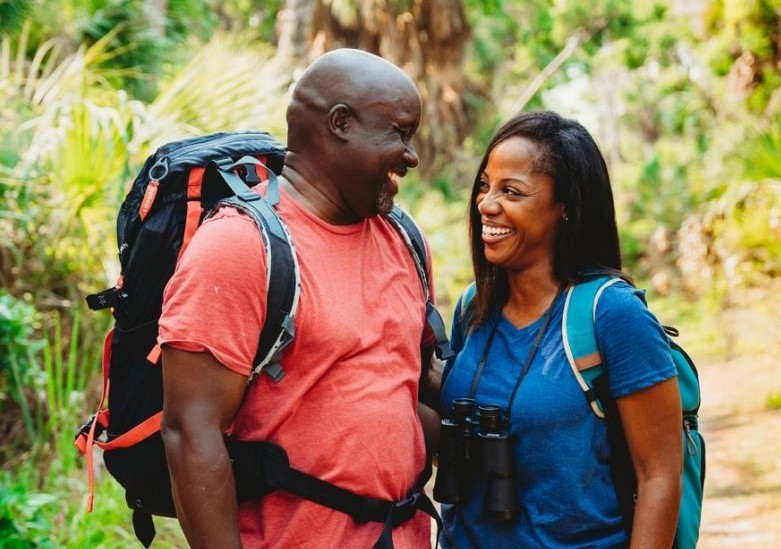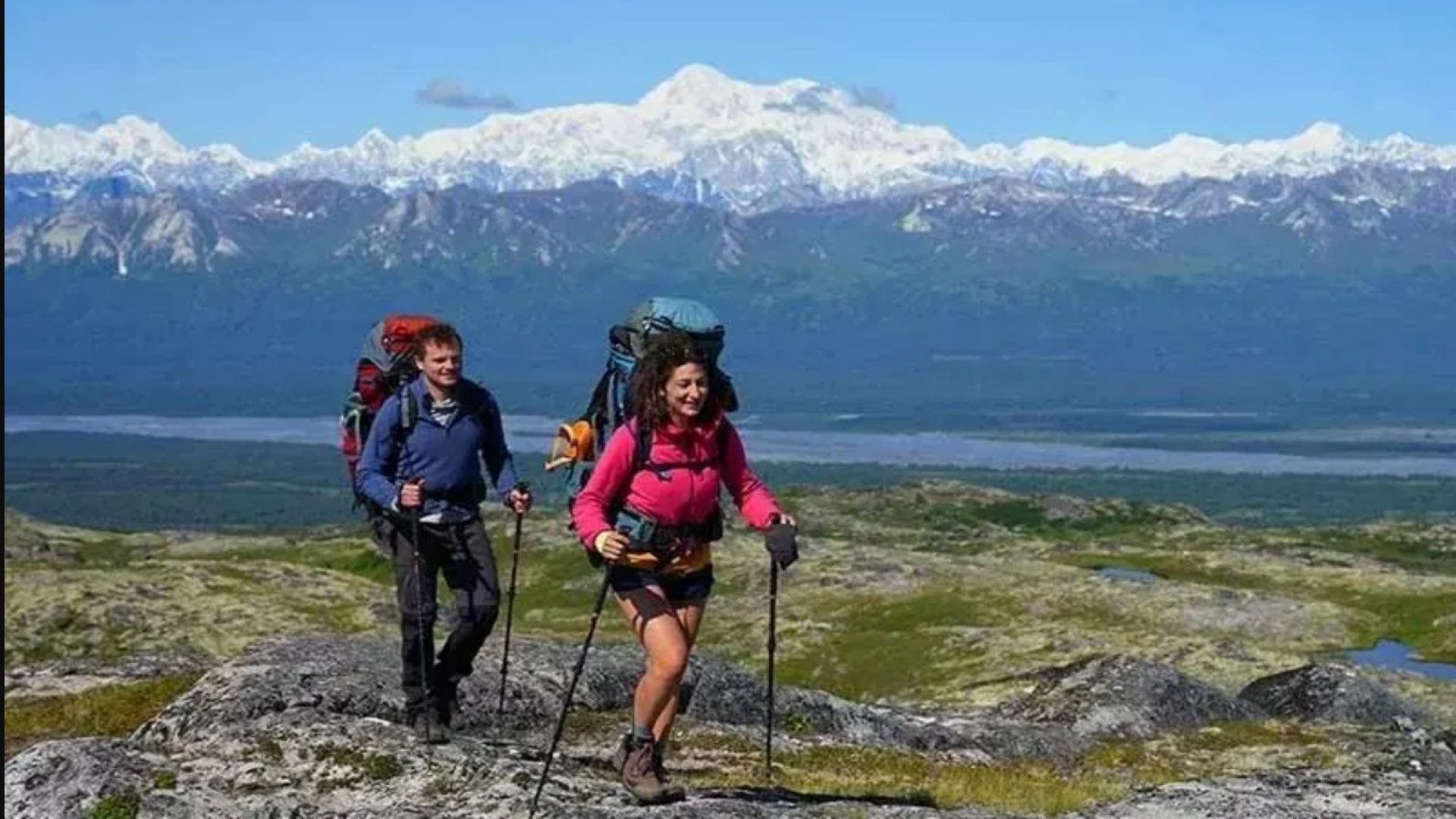First Day Hikes: A wonderful American tradition to Start the Year
These events are part of a nationwide initiative to promote outdoor recreation, healthy lifestyles, and a connection to nature.
 |
The program was launched by the America’s State Parks alliance in 1992, with the goal of encouraging people to start the year on a positive note by spending time outdoors. Today, First Day Hikes are hosted in all 50 states, attracting participants of all ages and fitness levels.
| First Day Hikes by the Numbers 1992: Year the First Day Hikes program was established. 50 States: All U.S. states now participate in the initiative. 85,000 Participants: Over 85,000 people joined First Day Hikes in 2023. 175,000 Miles: Total distance hiked collectively during the 2023 event. |
The Benefits of First Day Hikes
1. Physical Health
A brisk hike is an excellent way to engage in physical activity. Walking can improve cardiovascular health, strengthen muscles, and help manage weight. Starting the year with exercise sets the tone for a healthier lifestyle.
2. Mental Well-being
Spending time in nature has been proven to reduce stress, improve mood, and enhance mental clarity. First Day Hikes offer a chance to reset your mind and focus on your goals for the year ahead.
3. Social Connection
Many First Day Hikes are group events, providing an opportunity to meet new people and bond with friends or family. Shared experiences in nature often foster meaningful connections.
 |
| These hikes encourage participants to appreciate and protect the natural environment |
4. Connection to Nature
These hikes encourage participants to appreciate and protect the natural environment. They offer a chance to observe wildlife, enjoy scenic views, and learn about local ecosystems.
5. Tradition and Goal Setting
Participating in a First Day Hike can become an annual tradition. It also symbolizes stepping into the new year with purpose and determination.
Popular Destinations for First Day Hikes
1. State Parks
Most First Day Hikes take place in state parks, which offer a variety of trails for different skill levels. Parks like Acadia National Park (Maine) and Redwood State Park (California) are popular choices.
2. National Parks and Forests
Some national parks, such as Grand Canyon National Park and Great Smoky Mountains National Park, also host New Year’s Day hikes.
3. Local Nature Reserves
Smaller, lesser-known reserves can also provide beautiful settings for First Day Hikes. Check your local park system for events near you.
 |
Preparing for a First Day Hike
1. Choose the Right Trail
-
Beginner-Friendly Trails: Look for shorter, well-marked paths if you’re new to hiking.
-
Challenging Trails: Experienced hikers may opt for longer, steeper trails with breathtaking views.
2. Dress for the Weather
-
Wear layers to stay warm in cold climates.
-
Opt for moisture-wicking clothing and sturdy footwear.
3. Pack Essentials
-
Water: Stay hydrated, even in cooler weather.
-
Snacks: Bring energy-boosting foods like nuts or granola bars.
-
First Aid Kit: Be prepared for minor injuries.
-
Map or GPS: Ensure you know the trail layout.
4. Know the Rules
-
Follow Leave No Trace principles by packing out all trash.
-
Stick to designated trails to protect wildlife and minimize erosion.
-
Obey any park-specific regulations.
Tips for a Memorable First Day Hike
-
Start Early Take advantage of daylight by starting your hike in the morning. This also allows time for other New Year’s activities later in the day.
-
Bring Friends or Family Hiking with loved ones makes the experience more enjoyable and provides extra motivation.
-
Document the Moment Capture photos of the scenery and your group to commemorate the start of a new year.
-
Engage with Nature Take time to observe your surroundings. Look for wildlife, listen to the sounds of nature, and appreciate the beauty of the outdoors.
-
Set Intentions Use the hike as an opportunity to reflect on the past year and set goals for the new one.
Frequently Asked Questions (FAQs)
1. Do I need to register for a First Day Hike?
In most cases, registration is not required, but some parks may ask participants to sign up in advance. Check the website of the park hosting the hike for details.
2. Are First Day Hikes free?
Many parks waive entrance fees for First Day Hikes, but some may charge a nominal fee. Verify the cost with your chosen park beforehand.
3. What if the weather is bad?
Hikes may be canceled or modified in extreme weather conditions. Dress appropriately and check for updates from the park.
4. Can I bring my dog?
Many parks allow leashed dogs on trails, but rules vary by location. Confirm the pet policy for your chosen hike.
5. How long are First Day Hikes?
Hikes range from short, family-friendly walks (1-2 miles) to longer, more challenging treks (5+ miles). Choose a trail that matches your fitness level.
6. What should I do if I’m a beginner?
Start with an easy trail and bring along an experienced friend. Make sure to wear comfortable shoes and pack the essentials.
7. Are First Day Hikes safe?
Yes, as long as you follow safety guidelines, stay on designated trails, and prepare adequately. Hike with a group if possible.
8. Can children participate?
Absolutely! Many First Day Hikes are family-friendly and offer activities specifically for kids.
9. What should I wear?
Layered clothing, a warm hat, gloves, and sturdy hiking boots are recommended for colder climates. In warmer areas, wear lightweight, breathable fabrics.
10. Why should I participate in a First Day Hike?
It’s a fun, healthy way to celebrate the new year while enjoying the beauty of nature and spending quality time with loved ones.
| First Day Hikes are more than just a walk in the park; they’re a meaningful way to embrace the new year with a sense of adventure, wellness, and connection. Whether you’re a seasoned hiker or a beginner, participating in this tradition offers countless benefits for your body, mind, and soul. Mark your calendar, lace up your boots, and start your year off on the right foot—literally! |





























